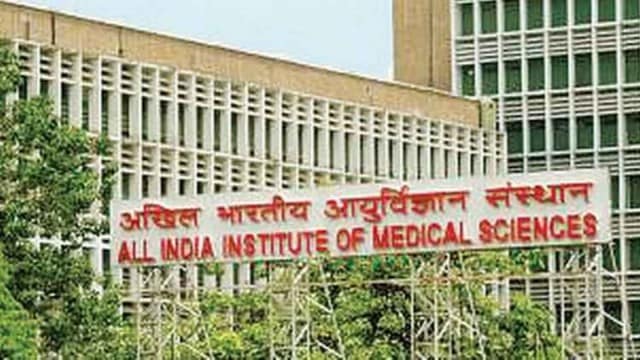Govt cautions AIIMS, PGI on Science Congress body
ISCA has gone to court against the government, and the matter is still to be resolved. For the first time in its history, the Science Congress, a permanent fixture on the Prime Minister’s calendar, could not be held this year.
 The Science Congress had to be abandoned in 2021 and 2022 as well but those were because of the disruption caused by Covid pandemic.
The Science Congress had to be abandoned in 2021 and 2022 as well but those were because of the disruption caused by Covid pandemic.The Department of Science and Technology (DST) has asked some of the topmost medical institutions in the country, including all the AIIMS, not to allow any representative from the Indian Science Congress Association (ISCA) to sit on their Boards or committees for the time being.
It has also told the Health Ministry to “invariably” seek a no-objection certificate from the DST before nominating any office-bearers of ISCA on any of the governing body/ Council or committee not just in these three medical institutions but in any of the other autonomous organisations functioning under its domain.
The Kolkata-based ISCA, the oldest association of scientists in the country, is known mainly for organising the Indian Science Congress every year, the first of which was held way back in 1914. It is one of the 26 autonomous institutes — one among the five bodies of science professionals — administered by the DST.
ISCA President for 2023-24, according to its website, is Arvind Kumar Saxena, who is Ex-Director, Institute of Basic Science, Bundelkhand University. Its Executive Committee has 19 members, and its Council has 79 members including past-presidents of ISCA. But ISCA has had a troubled relationship with the DST in recent years, over issues of alleged financial irregularities and misappropriation of government funds, charges denied by it.
ISCA has gone to court against the government, and the matter is still to be resolved. For the first time in its history, the Science Congress, a permanent fixture on the Prime Minister’s calendar, could not be held this year.
In a recent letter to the Ministry of Health and Family Welfare, DST said that since it did not recognise the current Executive Council of ISCA, and had suspended all current office-bearers of the organisation, ISCA representatives must not be allowed on the boards of medical institutions like AIIMS or PGI Chandigarh.
“ISCA has representations in all the AIIMS, PGIMR (Post Graduate Institute for Medical Research, Chandigarh) and JIPMER (Jawaharlal Institute of Postgraduate Medical Education and Research). It is brought to your notice that DST has suspended all office bearers and does not recognise the Executive Committee or Council of ISCA. It may be noted that a number of lapses and financial irregularities and misappropriation of government’s funds by the previous office bearers of ISCA are under scrutiny and probe,” the DST said in its letter on May 22. “Hence their (ISCA’s) representation in these organisations (medical institutions) is deemed unlawful, and they are to refrain from participation as representatives of ISCA in any of the Board of AIIMS or other autonomous bodies.”
The letter also asked the Health Ministry to obtain a no-objection certificate from DST before nominating any office-bearers of ISCA to any of its autonomous organisations in future. A senior scientist, who did not wish to be named, said many a time members of the ISCA are deputed as ex officio members of governing bodies in different institutions such as AIIMS Delhi, AIIMS Patna etc. “Now the government is saying you should get its clearance if ISCA wishes to nominate any of its members to such institutions. This suggests they want to take everything under their control,” he said.
The letter to the Health Ministry follows DST’s decision in March not to accept the new Executive Council constituted by ISCA. In a letter to ISCA on March 27 this year, DST said it would not accept the new office-bearers because the elections were not held in accordance with the established by-laws and were against previous directives of the Department, thereby rendering them “unlawful and unacceptable”. Then in May, DST restrained ISCA from holding a meeting of the newly constituted Executive Council on similar grounds.
But the problems began more than 15 years ago, mainly because of a noticeable decline in the standards of discussions at the Science Congress. With most leading scientists keeping away, the event had been reduced to a gathering of mostly university and college teachers with little scientific credentials or experience. Many within the scientific community itself had begun asking for reform or even a complete discontinuation of the event
The DST pays the salaries of ISCA’s permanent secretarial staff and also provides a grant every year to enable the holding of Science Congress.
In September last year, the DST withdrew its funding support for the Science Congress citing ‘financial irregularities’ and also amended the by-laws, which among other things, put more restrictions on how government funds could be utilised. Some office-bearers of ISCA challenged the amendments in Kolkata High Court, which is where the matter currently resides.
These troubles were the main reason why the Science Congress could not be held this year. The Science Congress had to be abandoned in 2021 and 2022 as well but those were because of the disruption caused by Covid pandemic.







